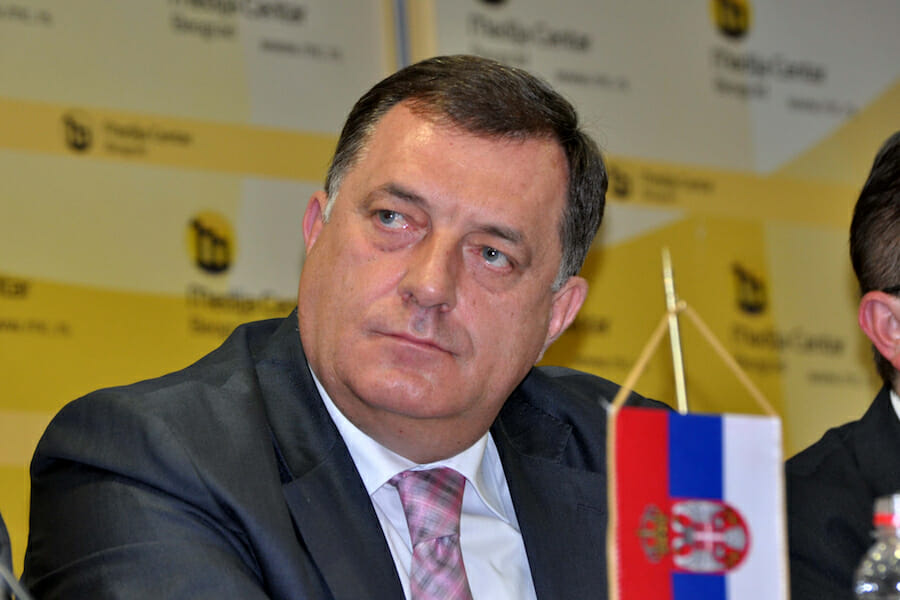
Dodik Recognizes the Realities and Constraints of Building a Stable Bosnia
Milorad Dodik has been speaking in defence of the Dayton Accord which ended the Bosnian War two decades ago and is calling on the guarantors of the Dayton agreement – the EU, the U.S., and Russia – to enforce its provisions. He fears that Bosnia-Herzegovina will break up if Dayton is ignored and that this could lead to instability or even war.
The Dayton Agreement brought to an end the tragic Bosnian war when it was signed by world leaders in Paris more than 20 years ago. It provides for a stable political system in a state structure with Republika Srpska controlling 49% of the territory and the Federation of Bosnia and Herzegovina 51% and is comprised of three constituent peoples, Bosniaks, Croats, and Serbs, under one constitutional system. The agreement guarantees autonomy to each entity and sets out protection mechanisms for the national interests for all the people.
Bosniak political parties were never satisfied with the Dayton Agreement and historically have always wanted a centralised unified state to exercise authority on their own. This resistance to Dayton by Bosniak parties remains one of the most serious obstacles to the development of Bosnia.
To the contrary, Dayton is still highly valued by the citizens of Republic Srpska who wish to see continued respect for the terms of the agreement and full compliance.
Dodik reminds us that the famous U.S. diplomat, Richard Holbrooke, who is credited as the agreement’s main architect, said back in 1997, “Bosnia is a federal state. It should be established as a federal state. It cannot have a single government, because then the country would go back to war. And that is the reason why the Dayton is probably the most successful peace agreement in the world in recent times because it takes reality into account.”
For the future, greater economic integration with the EU will help to seal a prosperous and stable future for Bosnia, but this will take time and Bosnia is one of the newest applicants for accession having only started the process in 2016.
Approaching a change in its institutions in the summer of 2019 and facing a major shift in voter support for the European project across the continent, the European Union is unlikely to make progress quickly with its plans for EU accession for the countries of the Western Balkans. Milorad Dodik has said that he favours EU accession in the longer term, but he wants to see much greater decentralisation of government structures in the interests of better financial management, efficiency, and accountability. Decentralisation is in line with the best practice of EU members, such as Germany and Belgium.
Dodik has accused the Office of the High Representative of bias due to his behaving like a colonial governor towards the Bosniak community. “The High Representative has no executive powers, yet he and his Office impose laws, displace democratically elected officials and interfere in the constitutionally-backed authorities,” he says. “He even interfered in the Constitutions of the constituent entities without any legal reason. Such interventionism has not contributed to stability, reconciliation, and mutual trust.”
He wants to see the role of the Office of the High Representative radically scaled back so that government structures and institutions in both the constituent parts of Bosnia-Herzegovina can develop and increase their capacities.
“This leads to discord and instability, exactly what the Dayton formula was intended to prevent,” Dodik says. “I want peace. We all want peace. But the current situation could lead us back to war.”
Commenting on his remarks, Doug Henderson, the former UK Defence Minister, said “Implementing the Dayton agreement is a first step to co-existing in our increasingly linked world community. In the Balkans, stability will require bonding with the European Union. Only then can economic progress and security be guaranteed.”
“Dodik has always been a strong leader. After so many years in power he now recognises the realities and constraints of building a stable Bosnia,” Henderson went on to say.

